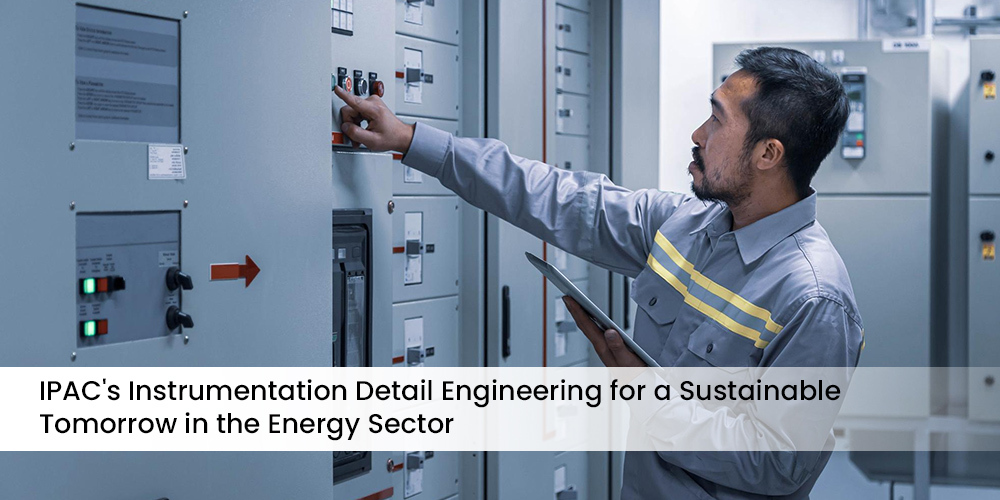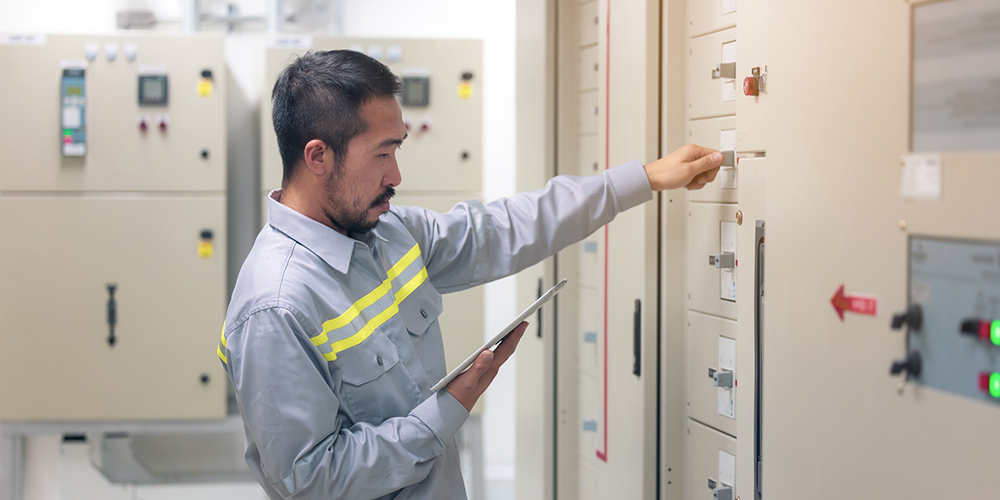IPAC’s Instrumentation Detail Engineering for a Sustainable Tomorrow in the Energy Sector
- March 14, 2024
- Posted by: Waman Sanap
- Category: Knowledge Hub

Introduction:
In the dynamic landscape of energy solutions, the role of precision engineering cannot be overstated. By using its unique approach to Instrumentation Detail Engineering, IPAC Automation, a leader in the field of Automation & Instrumentation engineering worldwide, is leading the way in sustainability. We explore the delicate nature of IPAC’s innovative approaches and their significant impact on establishing a future in the energy sector that is more sustainable.
Understanding Instrumentation Detail Engineering:
A vital aspect of the energy sector is instrumentation detail engineering, a discipline that focuses on the detailed planning, designing, and implementation of instrumentation systems inside energy infrastructures. This method of operation is taken a step further at IPAC Automation, where it emphasizes meticulous dedication to detail in order to guarantee the best possible performance, efficiency, and environmental sustainability.

IPAC’s Expertise Unveiled:
1. Holistic System Optimization: IPAC excels in conducting comprehensive assessments of energy infrastructures, identifying areas for improvement in instrumentation systems. Their expertise lies in developing tailored solutions that optimize the control and monitoring of critical parameters.
2. Cutting-edge Technology Integration: IPAC uses innovative technologies, such as data analytics, precision control systems, and cutting-edge sensors, in its pursuit for excellence. Predictive maintenance, energy-efficient operations, and real-time monitoring are made feasible by these integrations.
3. Environmental Stewardship: At IPAC, instrumentation detail engineering promotes sustainability than just efficiency. The organization focuses on decreasing the adverse impacts on the environment through establishing systems in place that reduce emissions, improve the handling of waste, and comply with strict environmental regulations.
4. Flexibility and Adaptability: IPAC’s technique for Instrumentation Detail Engineering has been distinguished by flexibility and adaptability, understanding the various requirements of the energy sector. IPAC personalizes solutions to meet the particular needs of any application, whether it is in oil and gas, renewable energy, or power generation.
The Impact on Sustainability:
- Operational Efficiency: IPAC’s approach enhances operational efficiency, ensuring optimal performance without unnecessary resource consumption.
- Environmental Responsibility: By reducing emissions and implementing eco-friendly practices, IPAC contributes to a more sustainable and environmentally responsible energy sector.
- Technological Advancements: IPAC consolidates state-of-the-art technology to future-proof energy infrastructures against transforming market standards and requirements, while simultaneously streamlining current operations.
Conclusion:
IPAC Automation’s dedication to encouraging sustainability in the energy industry is demonstrated by its support of Instrumentation Detail Engineering. IPAC is still an essential component in creating a future whose energy infrastructures are resilient, efficient, and mindful of the environment because of its emphasis on accuracy, innovation, and environmental concerns. IPAC is demonstrating the way in the global energy landscape concerning a sustainable future through its innovative activities.

Waman Sanap is the CEO of iPAC Automation, a leading instrumentation and control automation company. He has 20+ years of experience in the instrumentation engineering field.
